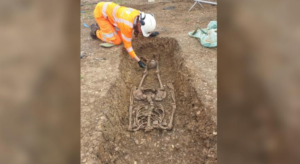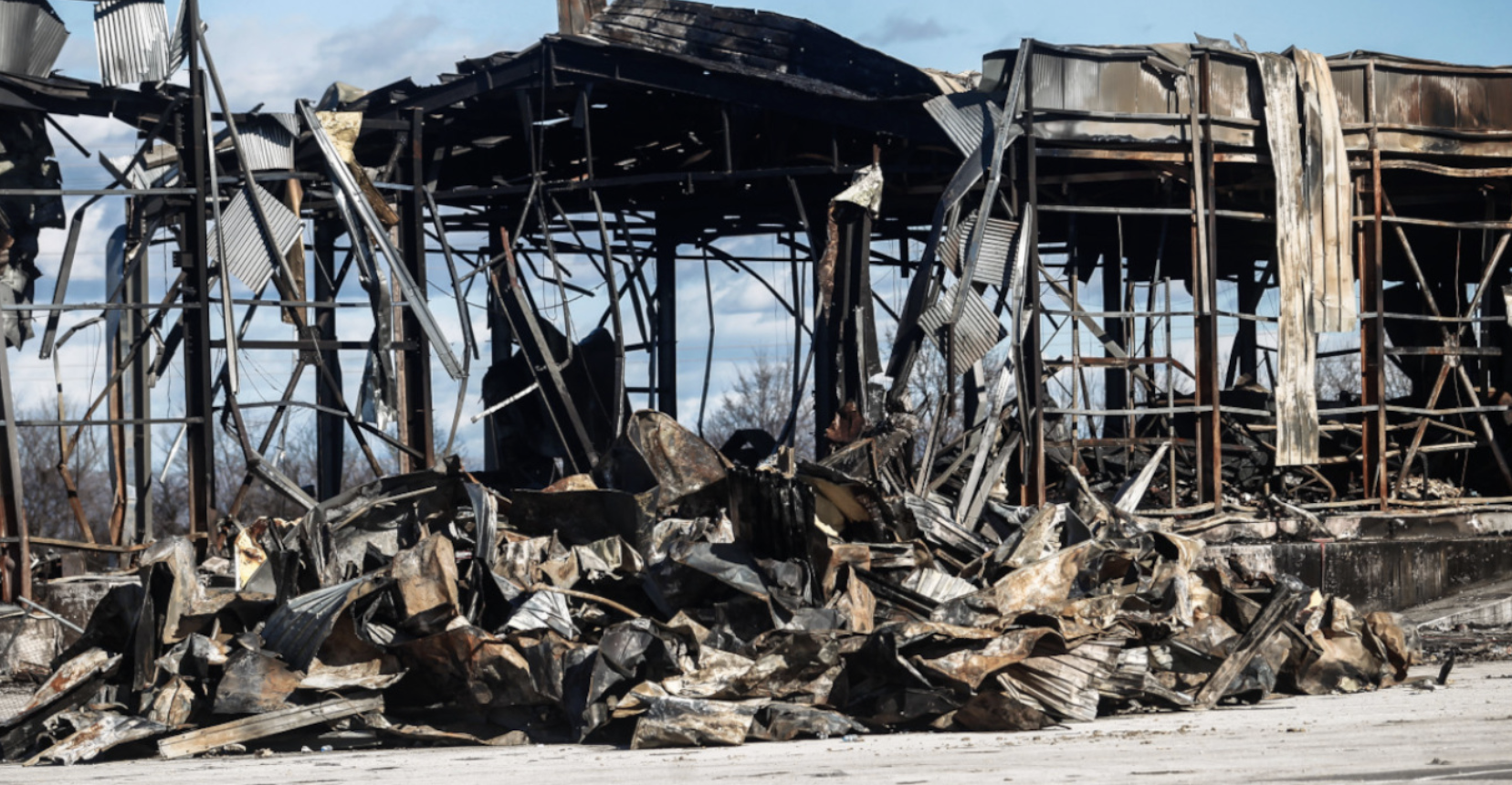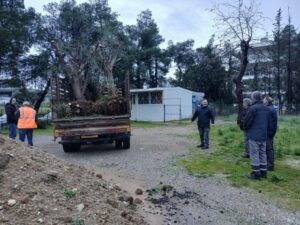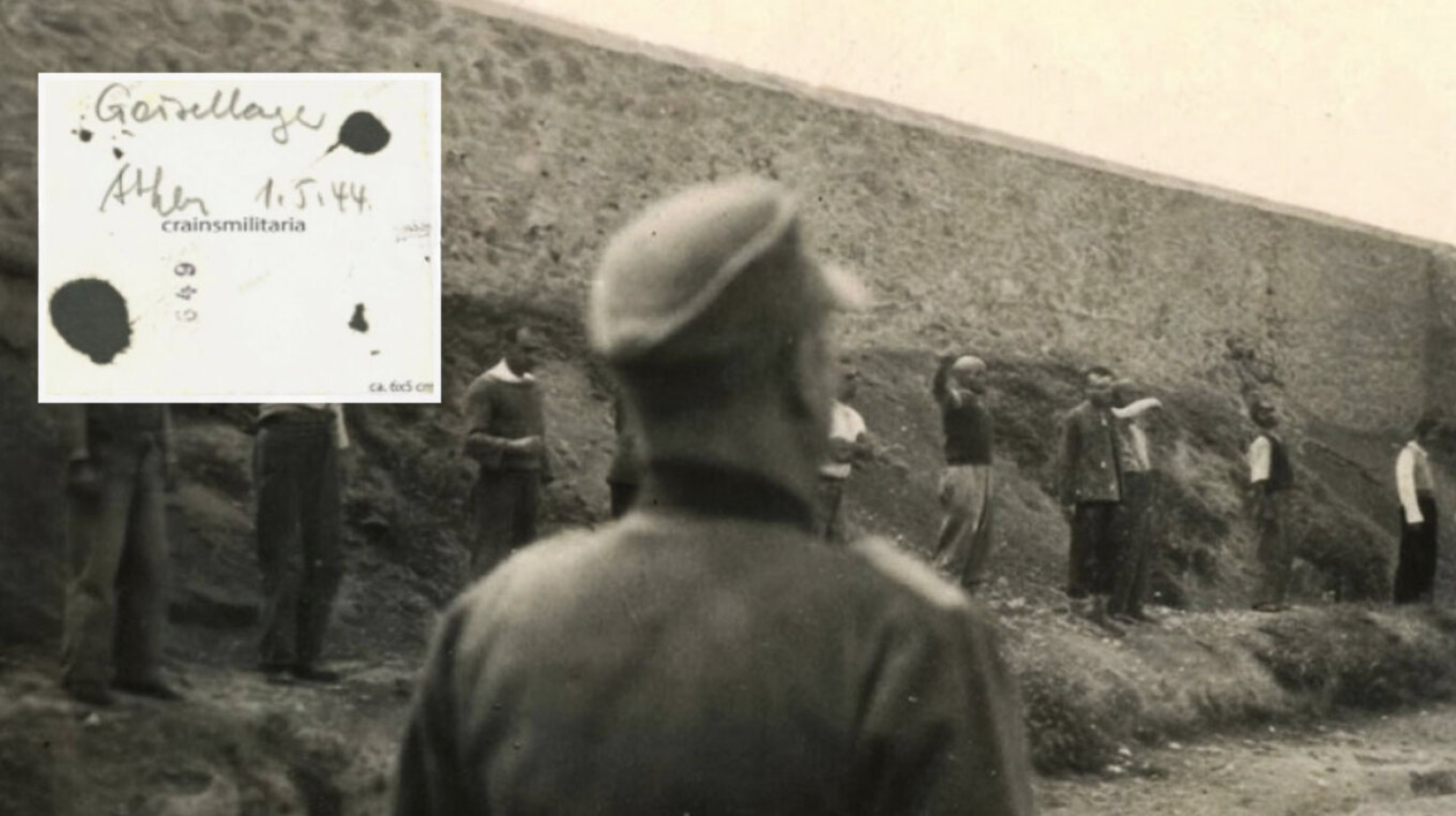About 40 decapitated skeletons unearthed by a group of archaeologists in southern England are thought to belong to “criminals” from the Roman period, researchers say.
The skeletons were found when archaeologists on England’s High Speed 2 program (HS2) discovered a late Roman cemetery, thought to be the biggest of its kind in Buckinghamshire.
A team of 50 archaeologists had been working the site for more than a year, where they also found sections of a Roman town in the local village of Fleet Marston, alongside more than 1,200 coins, and gaming dice, bells, spoons, pins and brooches.
The residential settlement was also likely used as a stopping place for soldiers and passersby traveling through Fleet Marston, en route to the Roman town of Alchester.
The cemetery contained about 425 burials in total, the rail company said in a statement.
The number of burials, as well as the settlement itself, implied that a large number of people arrived at the town between the mid and late Roman period – potentially as a result of inflated agricultural production.
One explanation for the use of decapitation as a burial practice could be that the skeletons were once “criminals or a type of outcast,” although such a process was a standard during the late Roman period, the statement added.
Read more: CNN
Ask me anything
Explore related questions





